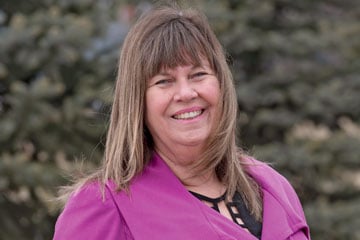
The Law Society of Ontario is in the midst of a major overhaul of the role of paralegals in family law — and a proposal on the issue could become an imminent issue for the regulator’s newly elected benchers.

UPDATE: Paralegals are now allowed in family law
The Law Society of Ontario is in the midst of a major overhaul of the role of paralegals in family law — and a proposal on the issue could become an imminent issue for the regulator’s newly elected benchers.
The LSO’s April 30 election will be the first to elect lawyers and paralegals at the same time, as the number of paralegals in the province has nearly quadrupled since they were first regulated. The election comes as the regulatory body considers allowing paralegals to do more tasks traditionally done by family lawyers.
Cathy Corsetti, founder and president of Corsetti Paralegal PC & Associates in Mississauga, Ont., says that enacting the expanded scope of practice for paralegals in family law could be one of the Law Society of Ontario’s most important accomplishments.
Corsetti noted that, according to the LSO, more than 57 per cent of Ontarians did not have legal representation in family court in the period from 2014 to 2015.
“I’ve been a bencher for nine years and I’ve been hearing about family law being a crisis situation. And this makes sense to me,” says Corsetti, who is running for re-election.
“For paralegals, the big issue is expanding the scope, so this family law licence is to me just probably one of the most important things that the law society has ever done for the people of Ontario. Yes, it will improve the paralegal scope of practice, but it’s also helping the people who have a real need.”
On Feb. 28, a report to Convocation said the law society expects to spend $570,000 on licence development this year and that there have been more than 100 in-depth meetings with stakeholders since the Family Law Action Plan was approved on Dec. 1, 2017.
Although there have been discussions about scope of practice for paralegals in Ontario back to the 1980s, the topic continues to be a hot one, as Ontario was one of the first and only jurisdictions in North America to regulate paralegals, says Lisa Trabucco, assistant visiting professor at the University of Windsor. According to the law society, the number of paralegals in Ontario has nearly quadrupled since regulation. Other provinces will be watching Ontario’s moves on family law, too, Trabucco says.
Corsetti says her role on the Family Law Working Group, where she is vice chairwoman, is mostly dealt with in camera, but she adds that there could be a change coming in the family law realm for paralegals as soon as 2020.
The report noted that allowing paralegals to practise family law will be one of several changes facing family law practitioners, alongside Bill C-78, which would change the laws surrounding custody and divorce, and the expansion of the Unified Family Court, which the Canadian government says aims to reduce confusion around the division of responsibilities between the federal and provincial/territorial jurisdictions in family law.
M. Anne Vespry, a bencher, teacher and part-time lawyer in Ottawa who is running in the election, says the LSO’s commitment to expand the scope of paralegals was a wise one and it should move forward.
“A first-year-call lawyer who may have not taken family law in law school . . . if someone with that qualification can walk in and handle a family law trial, I’m not sure that I’m comfortable saying someone with specific training — as yet unknown — should not be allowed to do the same thing,” says Vespry.
“My understanding is that’s not what the law society is working on. I don’t believe there is any intention to expand the paralegal scope that far. So, if it’s a matter of people who can help with preparing a case, can handle the paperwork, joint applications, applications where there is not going to be any response, basic paperwork up to and including representing at a motion, I would have no problem with that.”
Robert Burd, who is also running for re-election, says he’s hoping that incoming lawyer benchers, like their predecessors, will be willing to look beyond their personal views and view the issue through the lens of the public interest.
“Ultimately, what goes hand in hand with that is to sell it to the lawyers and especially those in the family law bar who are extremely concerned about paralegals venturing into the realm of family law,” says Burd, president of Not Guilty Plea Paralegal Services PC in Brampton, Ont.
“I wish it would be viewed as an initiative to help access to justice rather than a threat to anybody’s livelihood. But, ultimately, this isn’t done without there being an access to justice need. There hasn’t been really any expansion for the scope of practice for paralegals since regulation. And, so, this has only been driven by the fact that there is an access to justice need.”
Stephen Parker, a sole practitioner who is running for the role of paralegal bencher, says that, despite becoming involved in the paralegal regulation sphere in 2002, he feels there is unfinished business when it comes to the role of paralegals.
“As far as education is concerned, from my own personal point of view, there should be a post-licensing further education, two full semesters on nothing but family law and related law, with a separate exam and a specialized licence,” says Parker. “They say they want to push forward with it, but I think the Paralegal Standing Committee should be pushing even more. One can’t help but feel that the law society might be trying to hold things up. I’m not saying they are, but there is a certain perception among paralegals that there is stalling going on.”